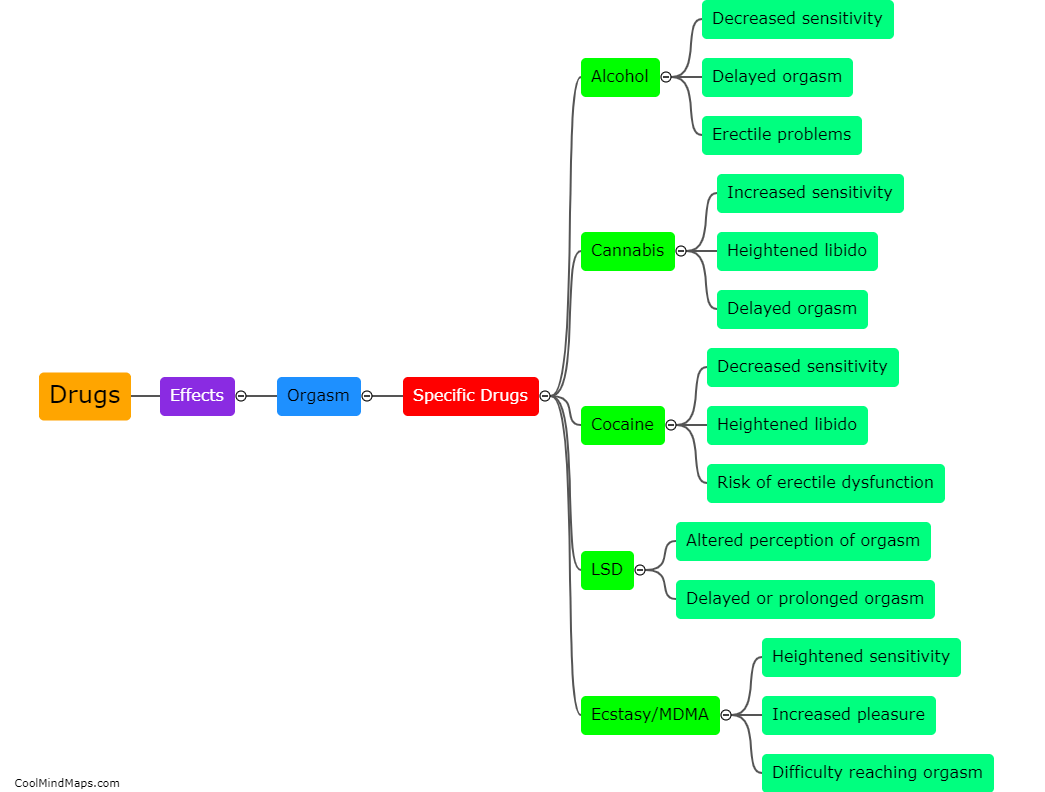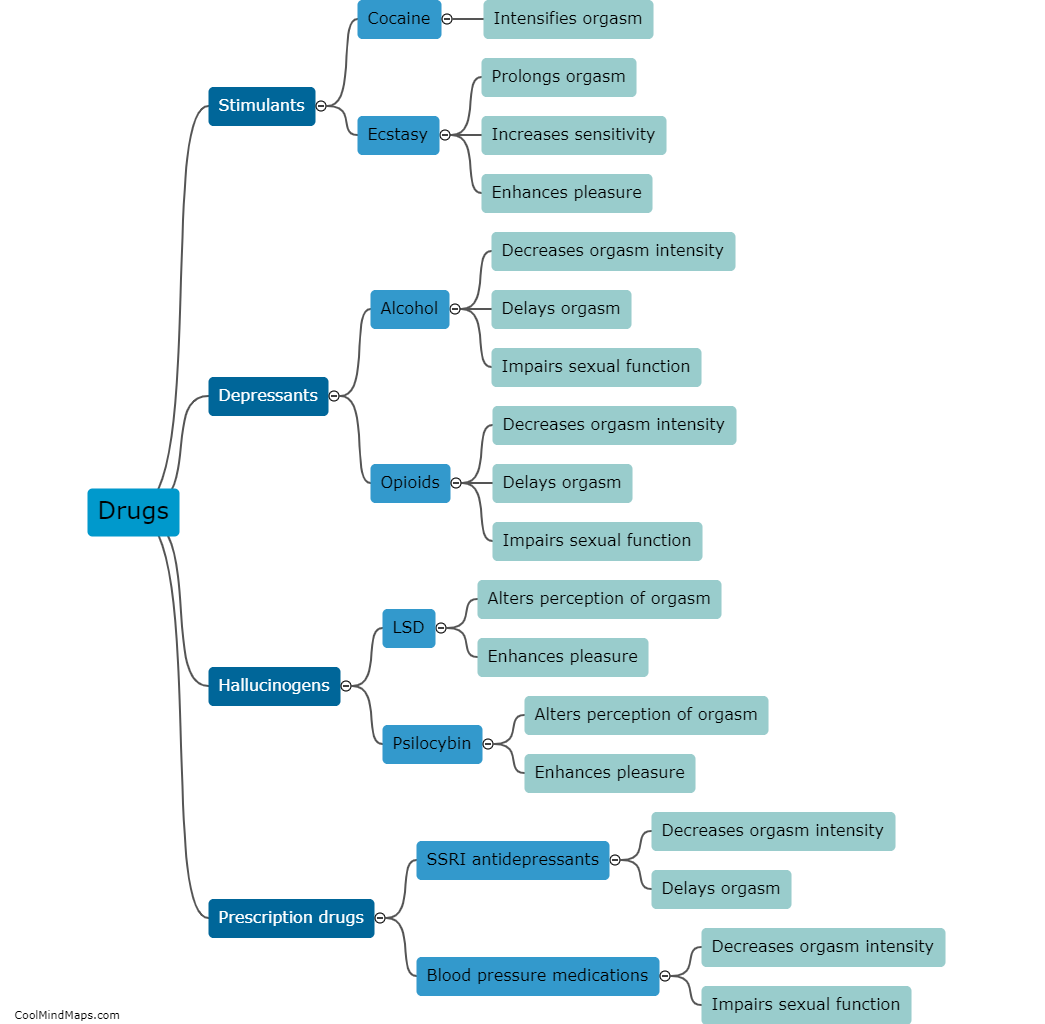Can neurotransmitter imbalance affect orgasm?
Yes, neurotransmitter imbalance can potentially affect orgasm. Neurotransmitters like dopamine, serotonin, and oxytocin play crucial roles in regulating mood, pleasure, and sexual response. Any disruption or imbalance in these neurotransmitters can impact the body's ability to experience and achieve orgasm. For example, decreased levels of dopamine may result in a diminished libido or anorgasmia, while imbalances in serotonin can lead to delayed orgasm or difficulty reaching climax. Similarly, low levels of oxytocin, often referred to as the "love hormone," can affect sexual arousal and orgasmic response. Neurotransmitter imbalance can be caused by various factors, including certain medical conditions, medications, hormonal changes, or lifestyle factors. Understanding the connection between neurotransmitters and orgasm can help identify and address any imbalances, potentially leading to improved sexual health and satisfaction.

This mind map was published on 5 December 2023 and has been viewed 99 times.











